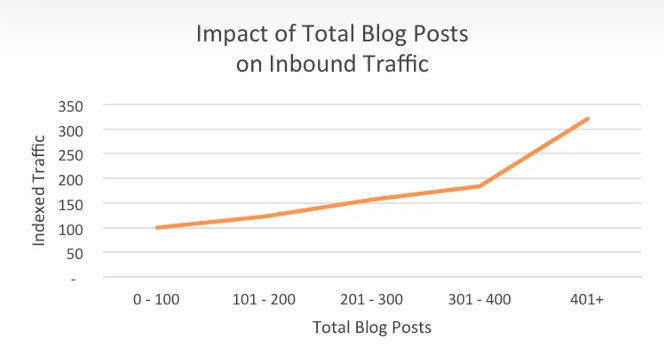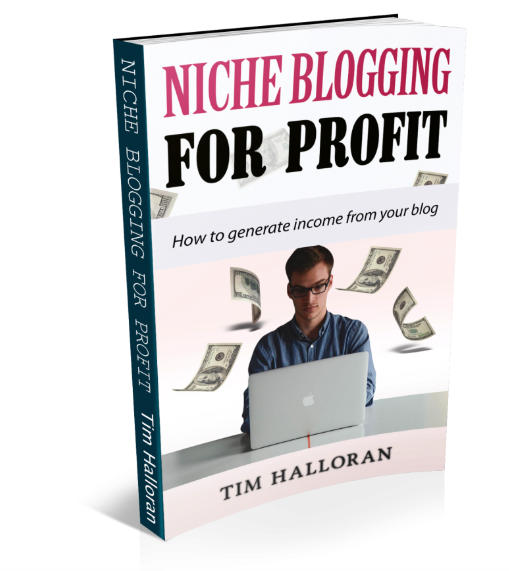How many articles should a blog have? Blogging attracts free traffic to a website from the search engines. The more blog posts you have, the more likely you’ll attract a greater volume of traffic. Some SEO experts recommend having at least 20 blog posts on your blog but the more posts you publish the better.
After all, 20 blog posts isn’t many, especially in a competitive niche. In a popular niche, you’ll be competing with other websites who have more content and greater authority with Google. So the more content you have on your site, the better it is. With more content you’re going to attract more visitors, but this also depends on how your content is perceived by the search engines and whether you find any traffic from it.
How Many Articles Should A Blog Have?

In the graph above you can see that traffic has an “uptick” once your blog posts exceeds a certain amount. In this case it’s beyond 400 blog posts. If you have less than 100 blog posts, you’ll likely see less traffic (from the search engines) than those with more. But it also depends on your blogging frequency, the age of your website, backlinks and the quality of your content, too. In a more competitive niche, you’re going to need to create more content because there’s more other websites competing in search for the terms you seek to rank for.
It’s totally possible too, to create a lot of content and it not really help your SEO. This is particularly true in a very competitive topic.
How Many Articles Should A Blog Have? – More Than You Think
Blogging is most definitely a slow strategy to improve your SEO (Search Engine Optimisation) over the longer term. Over time, as you continue to post new and relevant content in your niche, the search engines will rank your content accordingly.
A newer site will typically take a while to appear in the search engines results pages (SERPS). This can be between 3-6 months. If you only publish 10-20 posts and then stop, this is a signal to the search engines which will affect your ability to rank for your chosen terms.
A site which publishes continuously about a topic will likely do much better then than one with only a few blog posts. So ideally, make a habit out of publishing blog posts if you’re serious about growing your readership from the search engines and getting free traffic.
Targeting Keywords In Your Blog Posts
To get your posts ranking more prominently on the search engine results pages, and more quickly, you can focus your attention on writing for the long tail keywords which have fewer results on the SERPS. This can give you more chance of getting traffic because there’s less competition in the search engines results pages. This is a pretty useful tactic especially if you’re in a competitive niche. To find long tail keywords with low SEO difficulty, you can use Google’s keyword planner.

Type in your main keyword and look for the long tail keywords which typically have fewer monthly searches. These keywords have fewer monthly searches than the more competitive keywords. You may think this means less traffic. However, a little bit of traffic from fewer monthly searches, is worth more than no traffic from a competitive keyword.
With a two word keyword phrase, for example, you have very little chance of getting an article listed on the first page of Google. But with a five-word keyword phrase, there’s less competition. This means you have a much greater chance of landing that first page listing, should you decide to create content around that phrase.
Summary
How many articles should a blog have? Bloggers create content so that they will attract visitors from the search engines results pages (SERPS). The more posts you have, the greater your potential to attract website traffic for free. However, there’s a catch.
There’s other bloggers who are writing similar posts to yours. Google (and the other search engines) want to provide the best experience to their users. So they’re not going to rank any old content on their results pages. You need to therefore provide the best quality content if you’re going to have a chance of ranking it and getting free traffic.
A few posts will help you in a general way with your SEO – Search Engine Optimisation. But if your intention is to create free traffic, you’ll want more posts (and of better quality) than your competition. Generally speaking in this scenario, the more posts you write the better. Google will see you as more of an authority in your niche, and reward you with more first page listings.